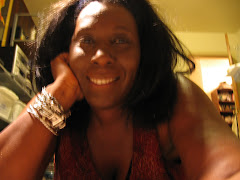It’s a power I’ve had to fight for, regardless of the titles put behind my name.
A quick review of articles written by Black activists in the movement reflects what has often been my experience – I have worked with many well-intentioned, well-meaning colleagues. Then suddenly, there it is. I walk face-first into what can only be described as that age-old paternalistic racism: I’m not taken seriously for what I know or what I do.
The pattern replicates my experiences placing “well-heeled” minority professionals in leadership positions with high-profile nonprofit boards.
Here’s a snapshot of these experiences.
Being marginalized -- treated like a ‘token.’ Often the slight is innocent enough. I once had a key person in authority tell colleagues it was fine to schedule a meeting to plan media outreach without me, the DIRECTOR of media relations. The reason? “Because it’s hard to schedule everyone together at one time.” I, the DIRECTOR of the program, can catch up later. Say whhaaat???
Other times, it’s more blatant -- like the time organizers planned a hip-hop concert, inviting press and doling out press passes without my knowledge. Luckily for the organization the only media that arrived was press I arranged -- and they didn’t need passes. An added sting was that same individual being named as a “champion of diversity” by another staffperson.
Being expected to serve as “spokesperson” for my race, or always asked to give the “minority perspective.” This usually happens when I least expect it. Like the time when, after a planning research session, a colleague asked me for the name of a good Black pollster. Problem is she had already approached someone else for her primary contact list, never thinking I might know more than minority pollsters.
Another time, I was having a congratulatory conversation with a key volunteer after the close of an exhibition. The discussion started out innocent enough then without warning descended into a question of ”why Blacks on public transportation were so loud” -- as if I had insight into a group people I didn’t know, on a train I didn’t ride, in a community in which I didn’t live.
Dealing with nonverbal and/or disparaging, repressive attitudes or remarks. This is the one I find hardest to stomach. I have to admit I haven’t perfected not falling into that classic stereotype of a loud, angry, hands-on-my-hips Black woman when this occurs.
Having my leadership constantly challenged:
And how. Similarly, many black activists site a resistance by established peace organizations to share leadership with, much less follow the leadership of, activists of color.
For example, in the days leading up to peace marches held around the start of the Iraq war, a group of activists of color wrote an open letter reflecting upon racism in the anti-war movement. In it they observed:
…the failure of predominantly white organizations to endorse or participate in anti-war activities sponsored by people of color groups; a discussion climate that excludes or demeans the contributions of activists/organizations of color, and disparaging or insensitive remarks by individuals. These practices have alienated individuals and organizations, and they have prevented cooperative bonds from forming as we work to build broad and deep opposition to war.
They went on to write:
Serious attempts have been made in the past to build anti-racist/racial justice politics among white activists. Yet we still see white activists and predominantly white organizations acting in ways that effectively marginalize and disrespect activists and organizations of color in anti-war work. While many of these individuals and organizations view themselves as anti-racist, their words and actions consciously or unconsciously, intentionally or not - effectively marginalize and disrespect activists and organizations of color.
The reality is, I believe, many peace activists have a keen awareness that they need to bring more Blacks into the movement. However, they are less clear on what to do with us when we get here.
Interestingly enough, I love what I do. Over the years, I have met a wealth of wonderfully inspiring people: Cindy Sheehan for example, the "peace mom" who camped out at President Bush’s Texas estate. Celeste Zappalla, Sue Niederer –- mothers who lost sons to the Iraq war and people I’ve come to love and admire. These ladies have always been genuine in their support and I see them as an oasis in an otherwise murky sea.

